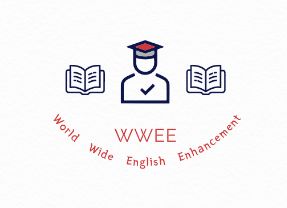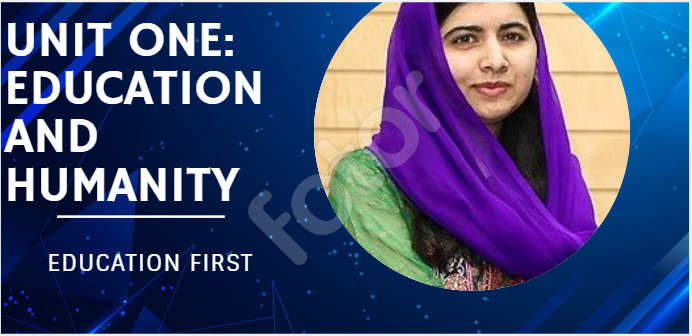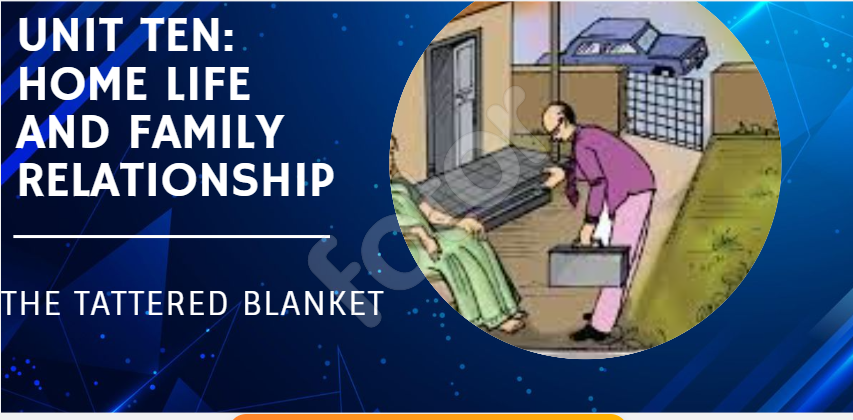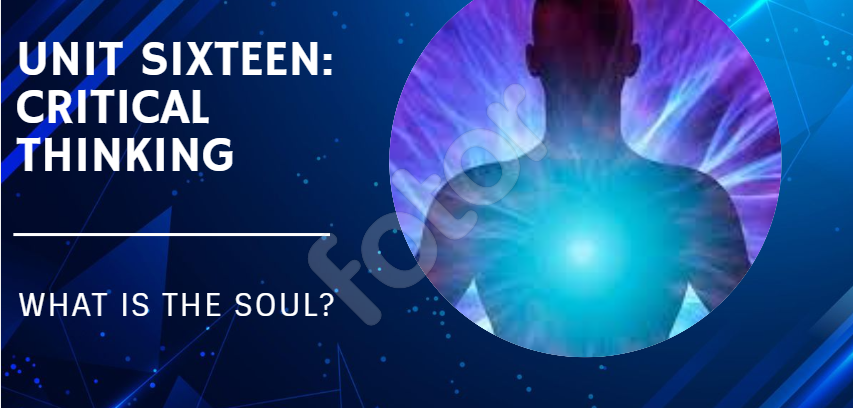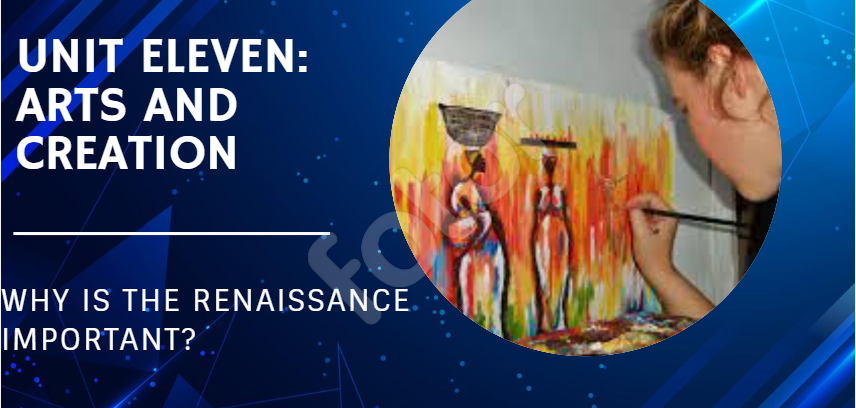Contents
Reading
Education First
Ways with words
A. Find the words from the text which mean the following.
a. a messenger or representative, especially one on a diplomatic mission
Ans: envoy
b. the state or quality of being worthy of honor or respect
Ans: dignity
c. harm done to someone in response to harm
Ans: revenge
d. a person who holds extreme views in political or religious matters
Ans: extremist
e. sympathetic pity and concern for the sufferings or misfortunes of others
Ans: compassion
f. a person who is believed to speak for God
Ans: prophet
g. the study of the nature of knowledge, reality and existence
Ans: philosophy
h. the use of physical force so as to injure, abuse, damage or destroy
Ans: violence
i. an unreasonable dislike of a particular group of people or things
Ans: prejuctice
B. Match the words on the left with their opposite meanings on the right.
a. honour — disgrace
b. innocent — guilty
c. brutality — kindness
d. forgiveness — punishment
e. illiteracy — literacy
C. Using Dictionary
a. Study the dictionary entry above and answer these questions.
i. What is the headword in the first entry?
Ans: Humanity is the headword in the first entry.
ii. How many meanings of the word ‘humanity’ are given?
Ans: There are four meaning of the word ‘humanity’ which are given in the text. They are:
- people in general
- the state of being a person rather than a god, an animal or a machine
- the quality of being kind to people and animals by making sure that they don’t suffer more than is necessary
- the subjects of study that are about the way people think and behave
iii. What do the abbreviations U, OPP, pl, and sth stand for?
Ans:
- U – uncountable
- OPP – opposite
- pl – plural
- sth – something
v. How is the word ‘humanize’ pronounced?
Ans: The word ‘humanize’ is pronounced as /ˈhjuːmənaɪz/.
vi. If we say Every person should have the sense of humanity, which meaning of ‘humanity’ is applied?
Ans: The meaning of humanity is the quality of being humane.
b. Arrange the following words in alphabetical order.
i. advance analysis amuse assure allergy attain aid anxiety acute agreement
Ans: acute, advance, agreement, aid, allergy, amuse, analysis, anxiety, assure, attain
ii. smoke small smart speaking smelling smoothly smuggler smashed smearing smallpox
Ans: small, smallbox, smart, smashed, speaking, smearing, smelling, smoke, smoke, smoothly, smuggler
iii. terminal terminate terminology termite terms terrace terrible terribly territory terror
Ans: terminal, terminate, terminology, terms, terrace, terrible, territory, terror
Comprehension
Answer the following questions:
a. Why did the speaker receive thousands of good-wishes cards and gifts from all over the world?
Ans: The speaker received thousands of good wishes cards and gifts from all over the world for her recovery and encouraging for her treatment.
b. According to the speaker, what are hundreds of human rights activists and social workers struggling for?
Ans: According to the speaker, hundreds of human rights activist and social workers are struggling for ascertaining the fundamental rights to all the people. There rights ae education, peace and equility.
c. What has she learnt from Gandhi?
Ans: She had learnt to be non-violent and compassion from Gandhi.
d. In what sense is peace necessary for education?
Ans: Peaceful environment is the basic requirement for better education. Wars and conflicts create a fearful environment and avoids student from going to school. In this sense peace is necessary for education.
e. According to the speaker, what are the main problems faced by both men and women?
Ans: According to the speaker, the main problems faced by both men and women are poverty, ignorance, injustice, racism and deprivation of rights.
f. What is Malala calling upon all governments?
Ans: Malala is calling upon the government to ensure free education to all children to fight against terrorism and violence and to protect children from brutality and harm.
g. What is the main message of this speech?
Ans: The main message of this speech is there should be a global struggle against illiteracy, poverty and terrorism and education is the only solution of these problems.
Critical Thinking
a. All children have the right to quality education. How can we ensure this right to every child? Discuss the role of the government and the parents to make sure that every child can attend school.
Ans: Children are the future of Nation. They should be provided good education for the future of the nation. All the children should be literate. All the Children have the right to quality education. Not a single child should be held back due to poverty, racism, religious background or any other social or mental discrimination.
The roles of government are:
- The government should make free education to every child up to intermediate level (10+2 or senior secondary school level).
- The government should compel to every parents to educate their children.
- The government can ensure these rights to every child.
The roles of parents are:
- Parents should educate to their children minimum to intermediate level.
- Then children should go for higher education or any vocational education to earn their livelihood.
- Parents should know the capability of their child or children and should select subjects and faculty according to children’s ability.
b. Do you think that there is still discrimination between sons and daughters in terms of providing education in our country? What strategies do you suggest to overcome such discrimination against girls?
Ans: Yes, there is still discrimination between sons’ and daughters’ education in developing countries and under developing countries especially in poor families. In orthodox customs and traditions, the girls have limited rights. The parents think daughter is for home chores. She should know about cooking the foods, cleaning the home, help to mother, and other household works.
I suggest following measures to overcome discrimination against girls education:
- The government should make different strategies for girls’ education.
- Government should implement strict roles against the parents who are against to the girls’ education.
- After completing studies, government and local levels should focused on job placement for girls in different sectors like boys.
- There should be a rule that in every sector there should be at least 1 girl.
c. A Chinese philosopher Confucius said, “If your plan is for one year, plant rice; if your plan is for ten years, plant trees; if your plan is for one hundred years, educate children.” What is the meaning of this saying? Elaborate this with examples.
Ans: Chinese philosopher Confucius is known as the most influential human. His teaching are still applicable and inspirable. The given example is one of the best his teachings about the importance of education. The sole meaning of the saying is that out goals decide what our actions need to be. If we want to live for one year, we should arrange the food materials which should be short-term investment. It we want to live for ten years, we should arrange for long-term investment.
In this way, the human kind will bloom and prosper. Our knowledge, good customs and traditions will spread. Proper education will help to be kind for other human beings and creatures. The statement carries the message of the importance of education for prosperity of the society too. Education plays a vital role on the development of community, society, country and whole world.
Grammar
B. Classify the underlined words into different word classes.
a. The man who is wearing glasses is my uncle’s friend.
Ans:
- who — pronoun
- wearing — verb
- my — determiner
b. I bought a round table in the supermarket.
Ans:
- round — adjective
- the — determiner
c. Alas, she is dead.
Ans:
- Alas — interjection
- is — verb
d. Hari works very hard all the time but his wife is very lazy.
Ans:
- hard — adverb
- but — conjunction
- wife — noun
- very — adverb
e. I have never been to Japan.
Ans:
- never — adverb
- to — preposition
